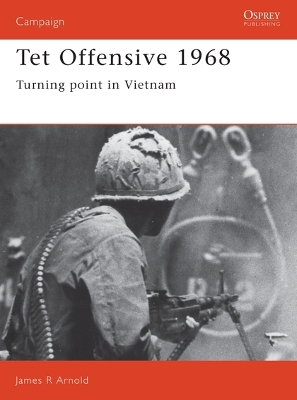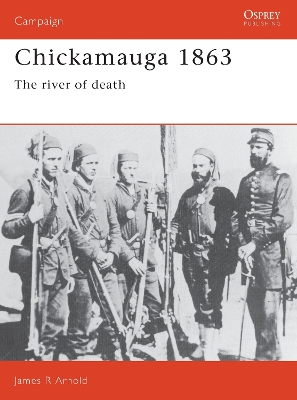Campaign
3 total works
Osprey's study of the 1968 Tet Offensive, which was the decisive battle for Vietnam (1955-1975). Masterminded by the brilliant North Vietnamese General, Vo Nguyen Giap, it was intended to trigger a general uprising in South Vietnam. However, the bloody fighting for Saigon, Hue and other cities actually resulted in a catastrophic defeat for the North. In this excellent assessment of the key battle of the Vietnam conflict, James Arnold details the plans and forces involved and explains how, despite the outcome of the battle, the American people and their leaders came to perceive the war for Vietnam as lost.
The first major battle in the Western theatre of the American Civil War (1861-1865), Shiloh came as a horrifying shock to both the American public and those in arms. For the first time they had some idea of the terrible price that would be paid for the preservation of the Union. On 6 April 1862 General Albert Sidney Johnston caught Grant and Sherman by surprise and very nearly drove them into the River Tennessee, but was mortally wounded in the process. Somehow Grant and Sherman hung on and the next day managed to drive back the hordes of grey-clad rebels.
In the bloodiest two days of the American Civil War, the Confederate Army of the Tennessee smashed the Union Army of the Cumberland along the Chickamauga creek, an Indian name meaning "river of death". For the first day Union lines held, but on the second a gap appeared in the Union line into which General J. Longstreet marched. The entire Union right collapsed and the army retreated headlong for Chattanooga, all except General George H. Thomas' corps who fought on until nightfall, delaying the Confederate advance and saving the Union. This book describes this conflict.


